Marrying within our own faith might not be as important to Americans as it used to be.
While nearly 7 in 10 married people have a spouse who shares their religion, more than one-third (39 percent) of U.S. adults who have tied the knot since 2010 chose a spouse from a different religious group.
Reverend Jim Burklo, Associate Dean of Religious Life at the University of Southern California, expects to see more interfaith marriages as religious identity and affiliation become more fluid in the United States, where more than 1 in 5 Americans consider themselves to be religiously unaffiliated.
“That’s the way of the world, that’s the way it’s headed, definitely,” said Burklo, who has officiated many interfaith marriages.
 Perhaps it’s an inevitable outcome in a pluralistic society. The majority of Americans, even Evangelical Christians, believe you can get to Heaven even if you’re not a Christian, according to previous Pew research.
Perhaps it’s an inevitable outcome in a pluralistic society. The majority of Americans, even Evangelical Christians, believe you can get to Heaven even if you’re not a Christian, according to previous Pew research.
“They have dear friends who are Christians, Buddhists, Muslims, whatever and they’re lovely people and they can’t even fathom the idea that they’d be going to Hell,” Burklo said. “There’s an accelerating trend of religious diversity scattered all over the country, including the Bible Belt, and that exposure makes it much harder to believe that your way is the only way.”
Many of these interfaith marriages are between Christians and people who consider themselves to be religiously unaffiliated. Of the U.S. weddings since 2010, almost 1 in 5 occurred between a Christian and a religiously unaffiliated spouse.
Burklo says the decision to marry outside one’s faith can sometimes trigger a deeper devotion to one’s faith.
“What might have made the relationship possible in the first place was that neither of them was too concerned about their religious identity,” he said. “But as the wedding approaches, people realize it affects their identity and how they want to raise children.”
Some interfaith couples choose not to raise their children in any religious tradition while others search for a mutually-agreeable compromise.
“Very often it’s some kind of blend of exposing the child to both traditions,” Burklo said. “Some couples realize they want to find a tradition that meets them in the middle…progressive churches become attractive.”
In addition to marriage, interfaith relationships are also becoming more common, according to the Pew Research Center. Nearly half of all unmarried couples who are living together, are cohabitating with someone who follows a different religion.
The Pew survey did find that some religious groups are more likely to stick to their own kind than others.
An overwhelming majority of U.S. Hindus (91 percent), are married or living with someone who shares their faith. More than three-fourths of Mormans (82 percent) and Muslims (79 percent) are also sticking with a romantic partner of the same religion.
Marrying within the faith is slightly less common among Jews (65 percent), mainline Protestants (59 percent) and people who consider themselves to be religiously unaffiliated.



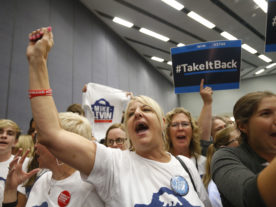


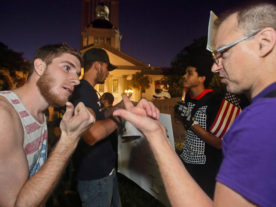



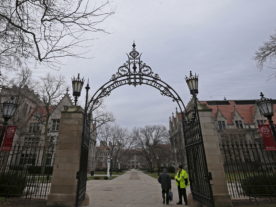

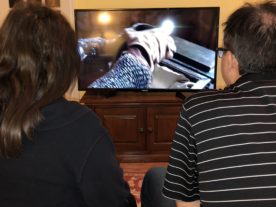
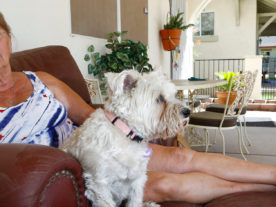




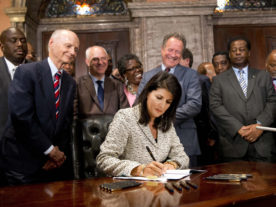

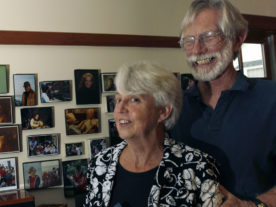


When it comes to marriage, I think that the influence of faith or religion is fading away rapidly in this 21st century. But I’m wondering if there’s any research done on interracial marriage in USA. I was informed couple of years ago that some states in USA have laws prohibiting miscegenation, are these laws still enforced or not yet? ..just wanted to know!
Anti-miscegenation laws are unconstitutional in the United States were repealed by many states prior to a Supreme Court decision in 1967 which rendered all the remaining anti-miscegenation laws unconstitutional, due to the 14th amendment which requires all states to provide equal protection under the law to all people. Some remained on the books after the ruling, but were void.
https://en.wikipedia.org/wiki/Anti-miscegenation_laws_in_the_United_States